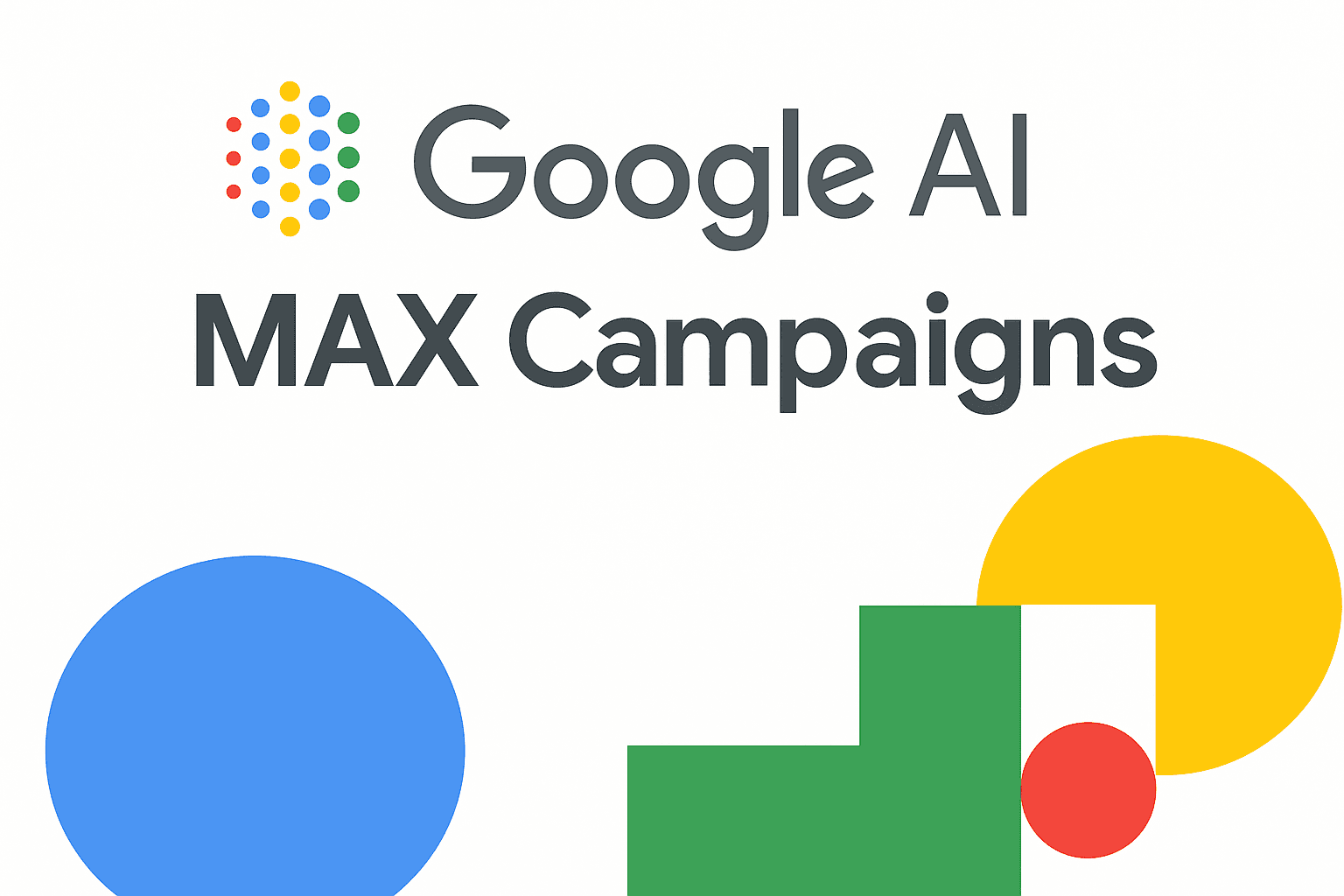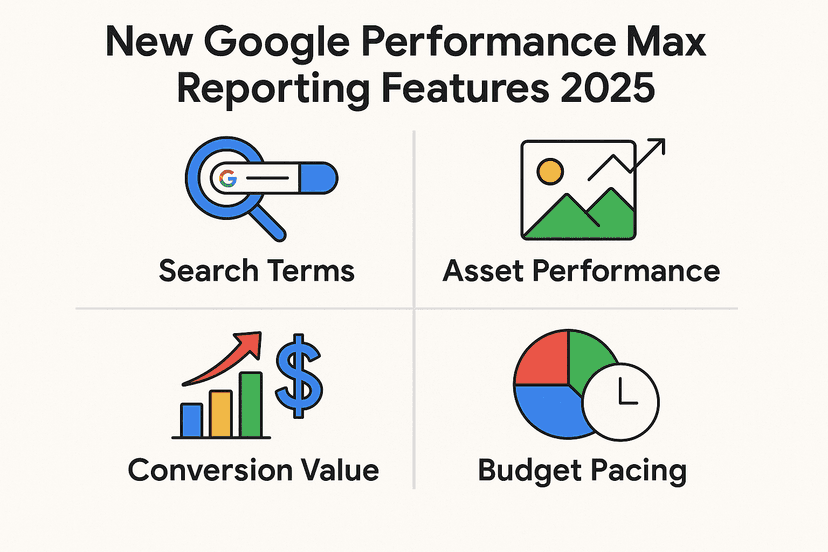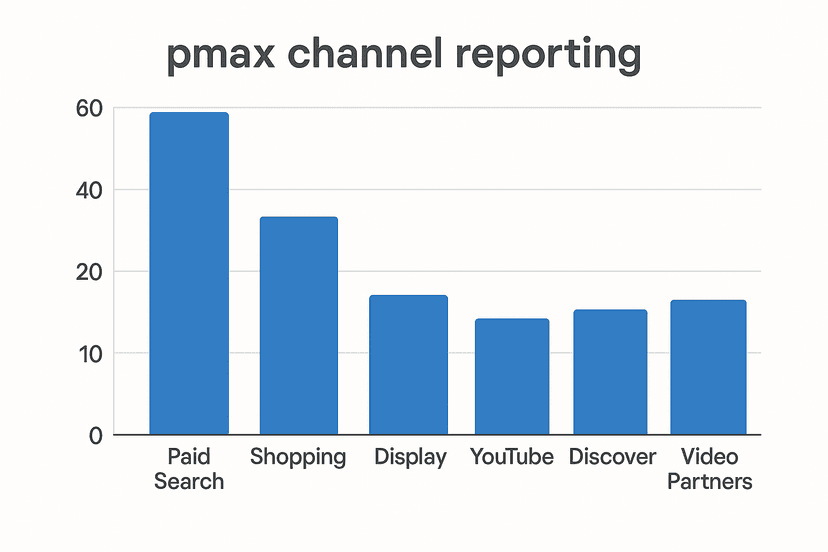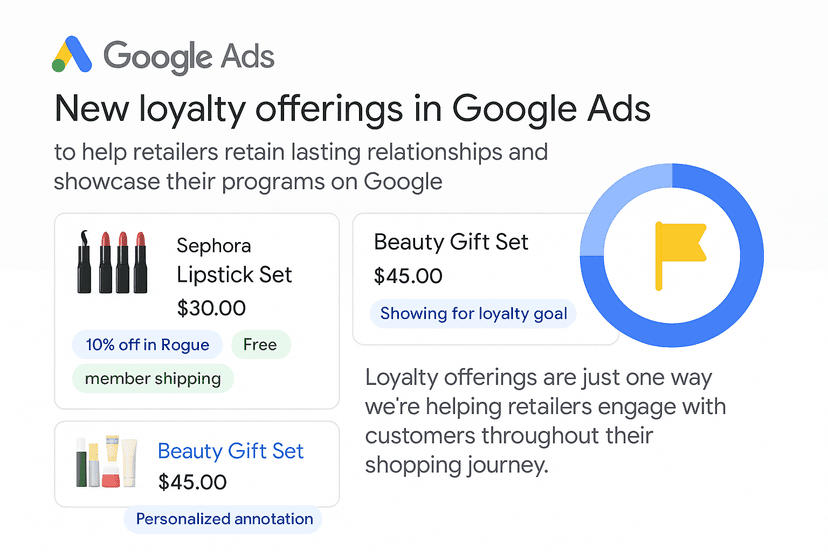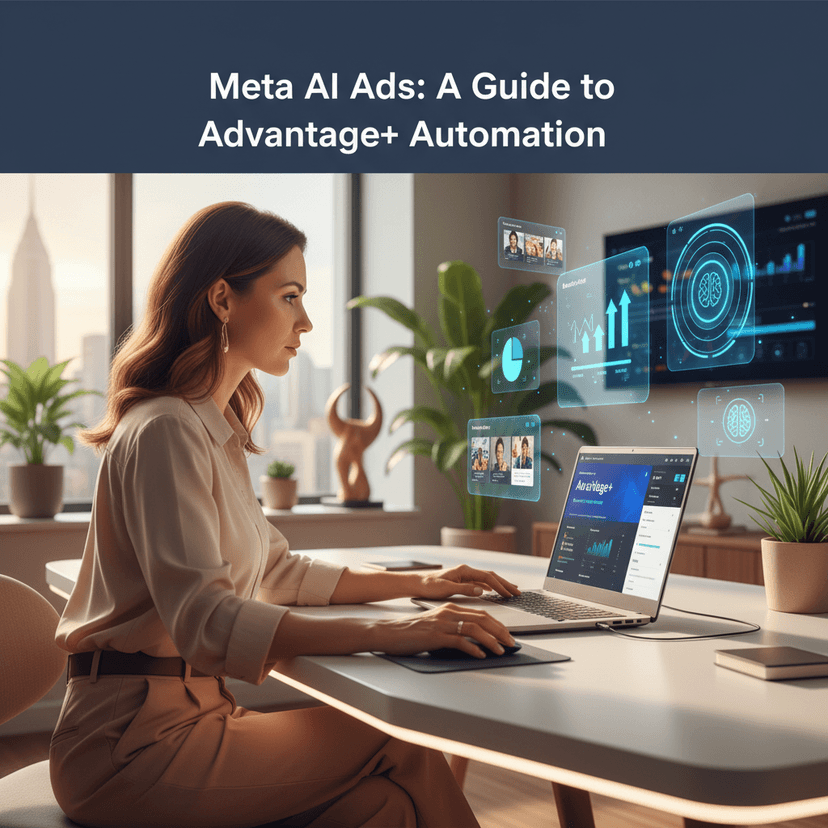Introduction
In the ever-evolving landscape of digital marketing, Google continues to innovate with cutting-edge technologies that reshape how businesses connect with their target audiences. The recent launch of Google AI Max Campaigns for Search represents a significant leap forward in search advertising, offering marketers powerful new tools to maximize their return on investment while minimizing manual effort.
These AI-powered campaigns leverage Google’s most sophisticated artificial intelligence systems to transform campaign management, targeting, bidding, and ad optimization. For digital marketers and businesses of all sizes, this development marks a pivotal moment in the evolution of search advertising strategies.
With Google AI Max Campaigns, advertisers can harness the full potential of machine learning to identify high-intent audiences, optimize ad creative in real-time, and allocate budgets more efficiently than ever before. This technology promises to democratize advanced advertising techniques, making sophisticated campaign optimization accessible to marketers regardless of their technical expertise or team size.
As we explore the capabilities, benefits, and best practices of Google AI Max Campaigns, it’s clear that this innovation represents not just an improvement to existing tools, but a fundamental reimagining of how search advertising campaigns can be structured and managed in the AI era.
For those looking to enhance their advertising strategies further, consider exploring options like Google Ads and Remarketing.
What Are Google AI Max Campaigns?
Google AI Max Campaigns represent the culmination of years of development in artificial intelligence and machine learning within Google’s advertising ecosystem. At their core, these campaigns are fully AI-powered search marketing solutions designed to maximize conversions while requiring minimal manual intervention from advertisers.
Unlike traditional search campaigns that require continuous monitoring and adjustment, AI Max Campaigns utilize Google’s advanced algorithms to handle the complex tasks of audience targeting, creative optimization, and bid management automatically. This automation extends far beyond simple rules-based systems, employing sophisticated predictive modeling to anticipate user behavior and adjust campaign elements accordingly.
The primary goal of Google AI Max Campaigns is to help advertisers achieve better results with less effort. By analyzing vast amounts of data in real-time, the AI can identify patterns and opportunities that human marketers might miss, making split-second decisions about when, where, and how to display ads to maximize conversion potential.
These campaigns integrate multiple AI systems working in concert, combining automated bidding strategies optimized for conversion value or acquisition costs, dynamic ad creative generation that responds to user signals, and intelligent audience targeting that goes beyond simple demographic or keyword matching to understand true user intent.
For advertisers accustomed to managing campaigns manually, the transition to AI Max Campaigns represents a significant shift in approach—from micromanaging individual keywords and bids to providing strategic direction and quality inputs that allow the AI to optimize effectively.
To understand more about leveraging AI in digital marketing, check out services such as Programmatic and Display Advertising.
Key Features of AI Max Campaigns
Google AI Max Campaigns come packed with innovative features that distinguish them from traditional search advertising approaches. Understanding these capabilities is essential for marketers looking to leverage this new technology effectively.
Smart AI-Driven Targeting
The targeting capabilities of AI Max Campaigns extend far beyond conventional methods. Rather than relying solely on predefined keyword lists or audience segments, the AI analyzes countless signals to identify users with high conversion potential. These signals include:
- Search intent patterns that indicate readiness to purchase
- Contextual factors such as time of day, device, and location
- Historical behavior and interaction with similar products or services
- Real-time market conditions and competitive factors
The system continuously learns from each interaction, refining its understanding of which audience segments are most likely to convert for your specific business objectives.
Dynamic Creative Optimization
Creative elements play a crucial role in campaign performance, and AI Max Campaigns excel in this area by automatically optimizing ad headlines, descriptions, and extensions. The system:
- Tests multiple creative variations to identify top performers
- Adapts messaging based on user context and intent signals
- Personalizes ad content to match the specific search query
- Adjusts creative elements in real-time based on performance data
This dynamic approach ensures your ads remain relevant and compelling, even as market conditions and user preferences evolve.
Automated Bidding & Budget Allocation
The financial aspects of campaign management receive particular attention in AI Max Campaigns. The AI handles complex bidding decisions by:
- Distributing budget across opportunities with the highest potential return
- Adjusting bids in real-time based on conversion probability
- Balancing short-term conversion goals with long-term campaign learning
- Optimizing for your specific performance targets, whether that’s maximizing conversions within a budget or achieving a target return on ad spend
This intelligent allocation of resources helps ensure every dollar of advertising spend works as efficiently as possible.
Centralized Performance Insights
Managing AI-driven campaigns requires different insights than traditional campaigns. Google AI Max Campaigns provide comprehensive analytics through:
- Unified reporting dashboards that highlight key performance indicators
- Transparent visibility into which audience segments are driving results
- Insights into search query patterns that lead to conversions
- Recommendations for strategic adjustments to improve campaign performance
These insights help marketers understand performance at a strategic level while the AI handles tactical execution.
For more information on optimizing your campaigns, you might find SEO Thailand and Local SEO helpful.
Benefits of AI Max Campaigns for Marketers
The introduction of Google AI Max Campaigns brings numerous advantages for marketers across organizations of all sizes. These benefits extend beyond simple efficiency improvements to fundamentally enhance how search advertising campaigns perform.
For marketers juggling multiple responsibilities, perhaps the most immediate benefit is the significant reduction in time spent on campaign management. Tasks that previously required daily attention—such as bid adjustments, keyword expansion, and ad testing—are now handled automatically by the AI system. This time savings allows marketing teams to focus on higher-level strategy and creative development rather than getting bogged down in tactical adjustments.
Performance improvements represent another crucial benefit. Early adopters report seeing higher conversion rates and improved return on ad spend compared to traditional campaign types. This performance boost stems from the AI’s ability to process and act on vast amounts of data in real-time, making optimizations that would be impossible for human marketers to implement manually.
Scalability becomes much more achievable with AI Max Campaigns. As businesses grow and advertising needs become more complex, the AI system can seamlessly adapt, handling increased volume without requiring proportional increases in management resources. This scalability is particularly valuable for seasonal businesses or those experiencing rapid growth.
For smaller businesses with limited marketing expertise, AI Max Campaigns democratize access to sophisticated advertising techniques. The automation handles complex optimization tasks that would typically require specialized knowledge, leveling the playing field and allowing these businesses to compete more effectively against larger competitors with dedicated marketing teams.
Perhaps most importantly, AI Max Campaigns continuously improve over time. As the system gathers more data specific to your business and objectives, it refines its approach, identifying new opportunities and eliminating inefficiencies to deliver progressively better results.
If you’re interested in expanding your marketing efforts, explore services like Ecommerce Marketing and Content Marketing.
Challenges and Considerations
While Google AI Max Campaigns offer remarkable benefits, they also present certain challenges that marketers should consider before fully embracing this approach. Understanding these considerations can help set realistic expectations and develop strategies to mitigate potential drawbacks.
The most significant adjustment for experienced search marketers involves relinquishing granular control. Traditional search campaigns allow for precise management of individual keywords, match types, and bid adjustments. With AI Max Campaigns, many of these tactical decisions shift to the AI system. This transition requires a mental shift from micromanaging campaign elements to providing strategic direction and high-quality inputs.
Transparency presents another challenge. While Google provides performance reporting, the exact decision-making process of the AI remains somewhat opaque. Marketers accustomed to understanding exactly why certain optimizations were made may find this “black box” approach frustrating at times. However, this opacity is often necessary for the complex machine learning models that power the system.
AI Max Campaigns rely heavily on conversion data to make intelligent decisions. This dependency means businesses must have robust conversion tracking implemented correctly before these campaigns can perform optimally. Organizations with limited historical conversion data or tracking issues may experience a longer learning period before seeing strong results.
Budget control works differently with AI Max Campaigns as well. While you still set overall budget parameters, the system distributes spending dynamically based on opportunity. This can sometimes lead to spending patterns that differ from traditional campaigns, which might require adjustment for businesses with strict spending cadences.
Finally, AI Max Campaigns represent a significant shift in skills required from marketing teams. Rather than detailed knowledge of keyword management and bid adjustments, successful management now depends more on strategic thinking, proper conversion setup, and the ability to interpret higher-level performance data to guide the AI system effectively.
To address some of these challenges, services like Data Security Compliance and Click Fraud Protection can be beneficial.
Best Practices for AI Max Campaigns
To maximize the effectiveness of Google AI Max Campaigns, marketers should adopt several best practices that complement the AI’s capabilities while mitigating potential challenges. These approaches focus on setting the system up for success rather than attempting to control every aspect of its operation.
First and foremost, implementing comprehensive conversion tracking is essential. The AI makes decisions based on conversion data, so ensuring all valuable user actions are properly tracked—including micro-conversions that indicate progress through the sales funnel—provides the system with the signals it needs to optimize effectively. Take time to verify that conversion values accurately reflect the true business value of different actions.
When it comes to keywords, embrace a broader approach than you might use with traditional campaigns. While specific keywords still matter, AI Max Campaigns work best when given flexibility to identify and target high-intent searches that might not match your predefined keyword list exactly. Starting with broader match types allows the AI to discover valuable search queries you might not have considered.
Creative assets play a crucial role in campaign success. Provide multiple variations of headlines and descriptions that communicate your value proposition from different angles. This diversity gives the AI system more options to test and optimize, increasing the likelihood of finding messaging that resonates with different segments of your target audience.
Audience signals remain important despite the AI’s advanced targeting capabilities. Provide first-party data and customer lists when available, as these inputs help the system identify similar high-value prospects. However, avoid overly restrictive audience targeting that might limit the AI’s ability to discover new valuable segments.
When evaluating performance, adjust your timeframe expectations. AI Max Campaigns typically require a learning period to gather sufficient data before reaching optimal performance. Resist the urge to make major changes during this initial phase, instead allowing the system time to learn and adapt. Once past this learning period, focus on strategic adjustments rather than tactical tweaks.
Finally, maintain a testing mindset even with automated campaigns. Regularly introduce new creative elements, try different landing pages, and experiment with various conversion actions to provide fresh opportunities for the AI to identify improvements.
For additional guidance, consider exploring Lead Generation Service and Graphic Design.
Why AI Max Campaigns Are the Future of Search Advertising
The introduction of Google AI Max Campaigns represents more than just another feature update—it signals a fundamental shift in how search advertising will evolve in the coming years. Several factors suggest these AI-driven approaches will become increasingly central to digital marketing strategies.
The complexity of the digital advertising landscape continues to increase exponentially. With millions of potential targeting combinations, creative variations, and bidding opportunities, human marketers simply cannot process all relevant variables manually. AI systems excel precisely at handling this complexity, making connections and optimizations that would be impossible through traditional management approaches.
Consumer expectations for relevance and personalization continue to rise. Modern users expect advertising that speaks directly to their specific needs and circumstances. AI Max Campaigns can deliver this level of personalization at scale by analyzing individual user signals and adapting messaging accordingly—something traditional campaigns struggle to achieve efficiently.
The digital advertising talent gap presents another challenge for organizations. Finding and retaining skilled search marketing specialists remains difficult and expensive. AI Max Campaigns help bridge this gap by automating technical aspects of campaign management, allowing businesses to succeed with search advertising without requiring specialized expertise for every tactical decision.
Market dynamics are changing faster than ever before, with shifts in consumer behavior, competitor actions, and economic conditions requiring rapid adaptation. AI systems can detect and respond to these changes in real-time, adjusting campaign elements to maintain performance even as conditions evolve—a level of agility difficult to achieve with manual management.
Perhaps most importantly, the AI technology powering these campaigns continues to advance rapidly. What seems impressive today will likely appear basic compared to capabilities available in the near future. Organizations that embrace AI-driven approaches now position themselves to benefit from these ongoing improvements, building institutional knowledge and processes that complement automated systems.
To stay ahead, consider integrating services like Web Design and Email Marketing.
Frequently Asked Questions (FAQ)
What exactly are Google AI Max Campaigns?
Google AI Max Campaigns are advanced search advertising campaigns that leverage artificial intelligence to automate and optimize various aspects of campaign management. They use machine learning to handle targeting, bidding, budget allocation, and creative optimization with minimal human intervention, aiming to maximize conversion performance while reducing the manual effort required from advertisers.
How do Google AI Max Campaigns differ from Smart Campaigns?
While both utilize automation, Google AI Max Campaigns represent a more sophisticated evolution of AI in advertising. Smart Campaigns primarily focus on simplifying campaign setup for small businesses, while AI Max Campaigns offer more comprehensive automation with advanced targeting, creative optimization, and performance capabilities suitable for advertisers of all sizes. AI Max Campaigns also provide more detailed reporting and strategic insights than Smart Campaigns.
What kinds of businesses benefit most from Google AI Max Campaigns?
Google AI Max Campaigns can benefit a wide range of businesses, but they’re particularly valuable for organizations with significant conversion data, diverse product offerings, complex customer journeys, or limited specialized search marketing resources. Both large enterprises looking to scale efficiently and smaller businesses seeking sophisticated optimization without dedicated specialists can see strong results with this approach.
How much control do I maintain with Google AI Max Campaigns?
While tactical control shifts to the AI system, advertisers maintain strategic control through several levers: overall budget settings, business objectives and conversion goals, creative assets and messaging, and negative keywords to prevent unwanted traffic. The focus shifts from manual optimization to providing quality inputs and strategic direction that guide the AI’s decisions.
What is the learning period for Google AI Max Campaigns?
Google AI Max Campaigns typically require a learning period to gather sufficient data before reaching optimal performance. This period varies depending on factors like conversion volume, campaign budget, and marketplace competition, but generally ranges from 2-4 weeks for initial learning. Performance typically improves progressively as the system gathers more data specific to your business.
For more details, feel free to explore Agencies and Relevant Social Ads.
Final Thoughts
Google AI Max Campaigns represent a significant evolution in search advertising, shifting the paradigm from manual optimization to strategic guidance of sophisticated AI systems. As we’ve explored throughout this article, this approach offers compelling benefits in efficiency, performance, and scalability while requiring adjustments in how marketers conceptualize campaign management.
The future of search advertising clearly lies in this direction, with artificial intelligence handling increasingly complex tactical decisions while human marketers focus on strategic direction, creative development, and business alignment. Organizations that adapt to this new reality position themselves for competitive advantage as the digital advertising landscape continues to evolve.
For marketers considering Google AI Max Campaigns, the key to success lies in embracing the strengths of AI rather than attempting to force it into traditional campaign frameworks. Provide high-quality inputs, maintain patience during learning periods, and focus on strategic adjustments rather than tactical micromanagement. With this approach, Google AI Max Campaigns can deliver remarkable results while freeing marketing teams to focus on higher-level strategic initiatives.
As with any significant technological advancement, those who adapt early and thoughtfully will likely see the greatest benefits. Google AI Max Campaigns aren’t just another tool in the digital marketing arsenal—they represent a fundamental rethinking of how search advertising campaigns can and should work in an AI-driven world.
For further assistance, don’t hesitate to reach out through our Contact Us page.
